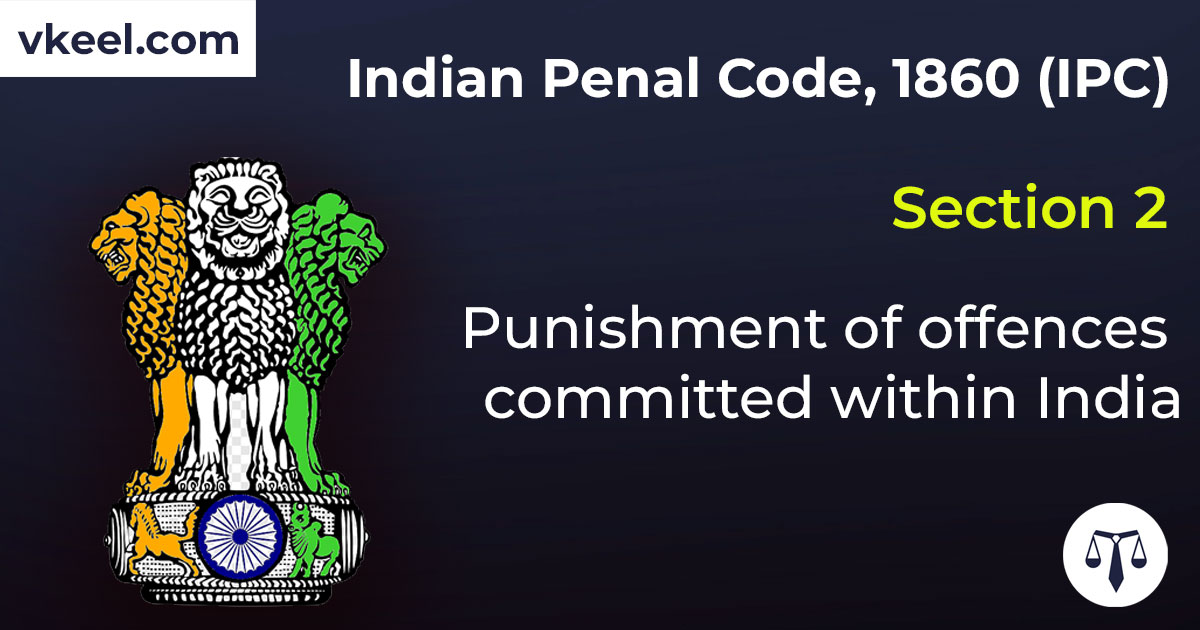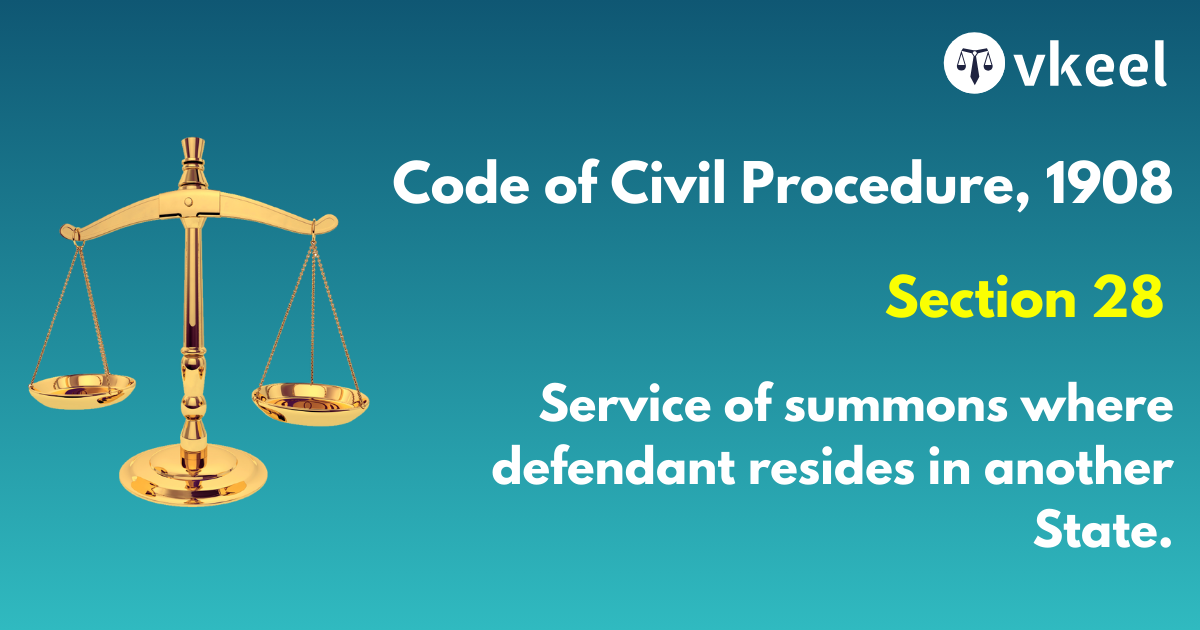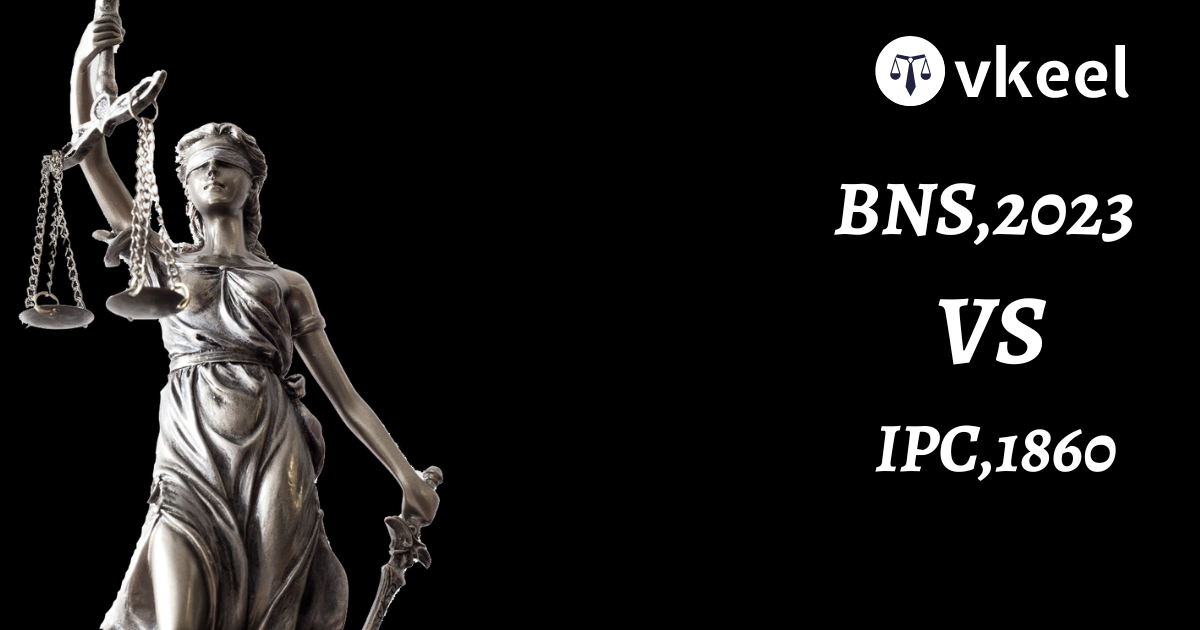Section 2 Indian Penal Code 1860 (IPC) – Punishment of offences committed within India
By Vkeel Team
Table of Contents
Description
“Section 2 Indian Penal Code 1860 (IPC)”
Every person shall be liable to punishment under this Code and not otherwise for every act or omission contrary to the provisions thereof, of which he shall be guilty within 1 [India]2 ****.
Overview of Section 2 of the Indian Penal Code 1860
Section 2 of the Indian Penal Code 1860 is a comprehensive section that outlines the general principles of criminal liability. It states that a person is liable for any act or omission that is punishable under the law. It also states that a person is liable for any act or omission that is made with the intention of causing harm or injury to another person.
The section further states that a person is liable for any act or omission that is done with knowledge that it is likely to cause harm or injury to another person. It also states that a person is liable for any act or omission that is done with the intention of causing wrongful gain or wrongful loss to another person.
The section also states that a person is liable for any act or omission that is done with the intention of causing fear of injury to another person. It also states that a person is liable for any act or omission that is done with the intention of causing alarm to the public.
Finally, the section states that a person is liable for any act or omission that is done with the intention of causing injury to the public or to any section of the public. It also states that a person is liable for any act or omission that is done with the intention of causing insult to any religion or religious belief.
Different Types of Offences Covered by Section 2 of the IPC
Section 2 of the Indian Penal Code (IPC) covers a wide range of offences. These offences are divided into two categories: offences against the human body and offences against property.
Offences against the human body include murder, culpable homicide, grievous hurt, kidnapping, abduction, wrongful confinement, rape, and criminal intimidation. Murder is defined as the intentional killing of another person without lawful justification. Culpable homicide is the unlawful killing of another person without the intention to cause death. Grievous hurt is defined as any injury that causes permanent disability or disfigurement. Kidnapping is the taking away of a person against their will. Abduction is the taking away of a person by force or fraud. Wrongful confinement is the unlawful confinement of a person against their will. Rape is the unlawful sexual intercourse with a person without their consent. Criminal intimidation is the threat of harm or injury to a person or their property.
Offences against property include theft, robbery, criminal misappropriation, criminal breach of trust, cheating, and criminal trespass. Theft is the taking away of another person’s property without their consent. Robbery is the taking away of another person’s property by force or threat of force. Criminal misappropriation is the unlawful use of another person’s property for one’s own benefit. Criminal breach of trust is the misuse of another person’s property that was entrusted to one’s care. Cheating is the fraudulent deception of another person for one’s own benefit. Criminal trespass is the unlawful entry into another person’s property without their consent.
These offences are punishable under the IPC and can result in imprisonment, fines, or both. It is important to understand the different types of offences covered by Section 2 of the IPC in order to ensure that one does not commit any of these offences.
Different Types of Punishments for Offences Committed Within India
In India, punishments for offences committed vary depending on the severity of the crime. The Indian Penal Code (IPC) outlines the different types of punishments that can be imposed for offences committed. These punishments range from fines to imprisonment and even capital punishment.
The most common type of punishment is a fine. Fines are imposed for minor offences such as traffic violations or petty theft. The amount of the fine is determined by the court and is usually based on the severity of the offence.
Imprisonment is another type of punishment that can be imposed for more serious offences. Imprisonment can range from a few days to life in prison, depending on the severity of the crime. In some cases, the court may also order the offender to pay a fine in addition to the imprisonment.
Capital punishment is the most severe form of punishment and is reserved for the most serious offences. Capital punishment is the death penalty and is only imposed in cases of murder or treason.
In addition to these punishments, the court may also order the offender to pay compensation to the victim or their family. This is usually done in cases of assault or other violent crimes.
The court may also order the offender to perform community service. This is usually done in cases of minor offences such as vandalism or public drunkenness.
1. The original words “the said territories” have successively been amended by the A.O. 1937, the A.O. 1948, the A.O 1950 and Act 3 of 1951, s. 3 and the Sch., to read as above.
2. The words and figures “on or after the said first day of May, 1861” rep. by Act 12 of 1891, s. 2 and the First Sch.
Description Source: indiacode
Disclaimer:
The information provided in the article is for general informational purposes only, and is not intended to constitute legal advice or to be relied upon as a substitute for legal advice. Furthermore, any information contained in the article is not guaranteed to be current, complete or accurate. If you require legal advice or representation, you should contact an attorney or law firm directly. We are not responsible for any damages resulting from any reliance on the content of this website.












